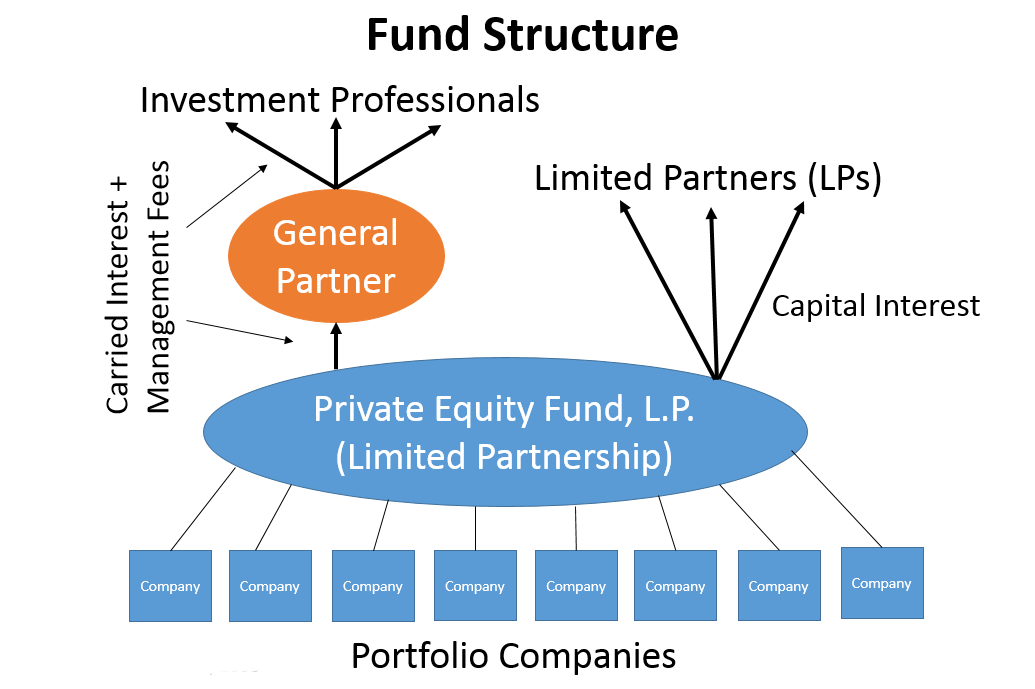Private equity funds are liquidity pools of capital to be purchased companies that represent a chance for a high rate of return. They feature a fixed investment horizonReturn on Financial Investment (ROI), typically ranging from 4 to seven years, at which point the PE firm wishes to successfully exit the investment.
2. Buyout or Leveraged Buyout (LBO)Contrary to VC funds, leveraged buyout funds invest in more fully grown businesses, typically taking a managing interest. LBOLeveraged Buyout (LBO) funds utilize substantial quantities of leverage to improve the rate of return. Buyout finds tend to be significantly bigger in size than VC funds. Exit Considerations, There are multiple consider play that affect the exit technique of a private equity fund.
Private Equity Fund – What Is It And How Does It Work?
In regards to a wholesale exit from business, there can be a trade sale to another buyer, LBO by another private equity firm, or a share repurchase. In regards to a partial exit, there could be a private placement, where another investor purchases a piece of business. Tyler Tysdal’s latest book Another possibility is business restructuring, where external investors get involved and increase their position in business by partially obtaining the private equity company`s stake.
To keep knowing and advancing your profession, the following resources will be handy:.
Private Equity Funds – Know The Different Types Of Pe Funds
Checking out your family history with Origins!.?.!? PE-backed. However just what is private equity? A foundational principle for anyone thinking about learning aboutor working in an industry digressive tothe private markets, this blog breaks down the basics of PE. What is private equity? Private equity (PE) is a form of funding where money, or capital, is invested into a business.
Private Equity – An Overview – Sciencedirect Topics
What is a private equity fund? To purchase a company, private equity financiers raise liquidity pools of capital from restricted partners to form a fundalso called a private equity fund. Once they`ve struck their fundraising objective, they close the fund and invest that capital into appealing business. Both private equity funds and hedge funds are limited to accredited investors.
And shared funds are just allowed to collect management costs, whereas PE funds can gather performance fees, which is discussed more below. How do private equity firms generate income? PE funds gather both management and performance charges. These can vary from fund to fund, however the. Determined as a portion of assets under management or AUM, typically around 2%.
Au Private Equity Fund – Individuals – Schroders


Determined as a percentage of the make money from investing, typically around 20%. These charges are intended to incentivize higher returns and are paid to workers to reward their success. How does private equity work? To buy a company, private equity financiers raise pools of capital from limited partners to form the fund.
When a PE firm offers one of its portfolio companies to another company or financier, the firm normally earns a profit and distributes returns to the limited partners that bought its fund. Some private equity-backed business might also go public. What are some examples of private equity companies? The Blackstone Group Headquartered in New York, the financial investment firm invests in PE, real estate and more.
Bain Capital Private Equity
So, VC is a kind of private equity. Here are some additional distinctions between PE and VC. Private equity PE firms frequently invest in mature businesses in traditional markets. Using capital dedicated from LPs, PE investors purchase promising companiestypically taking a majority stake (> 50%). When a PE firm sells one of its portfolio companies to another company or financier, returns are distributed to the PE financiers and to the LPs.
Equity capital VC firms typically buy tech-focused startups and other young companies in their seed. Utilizing dedicated capital, VC financiers normally take a minority stake (